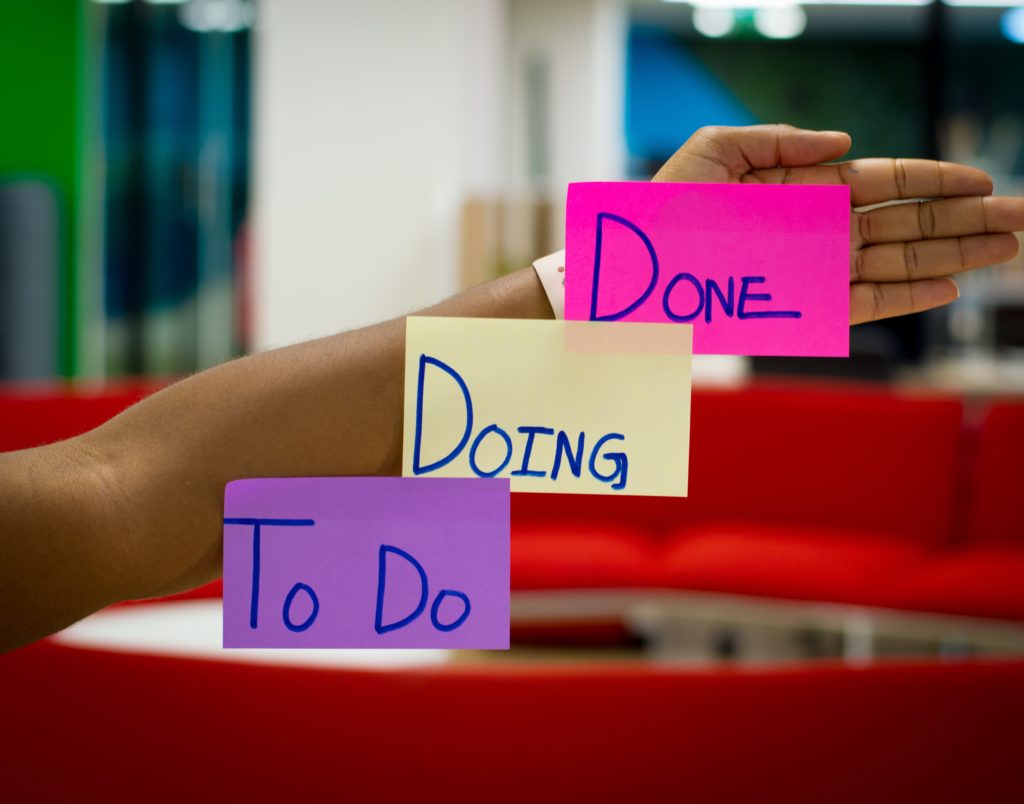People change their job for different reasons depending on many factors, i.e., what they were thinking months or days before the sending of the resignation letter, their family and friends’ opinions and feedbacks, income, benefits, and their circumstances.
Do you know some of the top reasons people choose to quit their old job or do a career change?
In a research conducted by LinkedIn, some of the main reasons are:
- Lack of opportunities: the previous company that the employees were working for didn’t provide a clear and strong room for more opportunities.
- Dissatisfaction with the manager: the previous company lacked proper HR management and employees ended up feeling dissatisfied.
- The monotony of work: the employees felt that they needed more challenging works.
- Work culture: unhealthy and bad work culture can affect many employees’ minds about switching companies. If you want to read on how to improve your work culture, you can read some great resources here and here.
- Compensation and benefits: Lack of proper compensation and benefits can make employees feel that they aren’t paid enough for their work.
- Lack of recognition: employees who don’t get recognition may feel that their work is not good enough.
If you’re an employee who’s looking to change your career, you might’ve already felt these reasons personally.
Of course, there are also people who don’t actually have a choice in their career change. One such scenario would be if they are retrenched during the pandemic.
Losing your job means that you need to find another job.
This leads to a career change whether you’ll be working in the same industry, specialisation, occupation or not.
Steps to a successful career change
For the reasons above, people have decided to find a new job or a career change.
However, a career change is actually more complex and difficult than you think.
It needs preparation and you can certainly go a long way to find a suitable career for yourself.
You might be lost on how to start even though you’ve left your old job.
But you can be assured because we’ve provided some steps you can follow when you’re confused about what to do next when doing a career change:
- Assess your skillset
- List jobs that you’re aiming for
- Consult someone that has the job in the industry
- Learn additional skills
- Make a plan and set a goal
- Trust yourself
Assess your skillset

After you decide that you want to do a career change, evaluate yourself.
Consider your capabilities and skills in as many fields as possible and write them in a list.
You can also take self-assessment tests that are easy to find online.
With self-assessment tests, you can get more detailed accurate results and you can do them at home in this pandemic situation.
Self-assessment is important for you to know the extent of your abilities and improve. That means you can keep in mind great skills that you’re great at but also see the skills that are lacking.
Reflecting on the lack of skills means that you have a chance to develop these skills.
When you do a self-assessment, you are preparing yourself for your next job so that you can become a more adept employee in your future company.
List jobs that you’re aiming for

Often times when people want to change careers, they’re confused on what job they want to do next.
This is true especially when you want to do a career change in a different industry.
In an industry you’re unfamiliar with, there will be a myriad of bewildering job descriptions, requirements, roles, and many things you won’t know right away.
That’s why it’s important to plan for a clear, detailed career path.
Try to list out several jobs that you’re passionate about and might choose for your career change. They can be as many as you want and whatever that comes to your mind.
If you’ve researched these jobs and done the self-assessment, you can start to eliminate the jobs that might not be suitable for you.
Even if you’re passionate about a certain job, you might have a low chance of success at it.
After you’ve narrowed down your list, you can start thinking about the probability of opportunities these jobs offer.
Which one has more opportunities for you?
If there’s one that seems to offer bigger opportunities, aim for that one specifically.
Consult someone that has the job in the industry

When you want to enter a career in a different industry, you’ll still have questions regarding the job no matter how much you research.
It’s because no matter how much there is information on the internet, it doesn’t reflect the real person who has the job.
This is why you need to find a network related to the industry you’re aiming for.
When you come to know people who work in that industry, you can interview and ask them for advice.
They can help guide you on what you should do before applying for the job.
This is so you can be more prepared for the interview and you have the right attitude for the job.
You can also ask them about their experiences in working or what their job entails.
When you know what you should do in that job, it takes little time to adapt to it.
Of course, you can also ask about some realistic expectations such as salary and benefits they get in their company. With this, you can have a higher at a successful career change.
Learn additional skills

After doing self-assessment, you’ll know your capabilities and the places where you should develop.
And when you’ve researched about the career you’re aiming for, you know what to prepare for.
So what’s the next step?
You need to prepare yourself even more.
That means to train yourself to pick up additional skills. Of course, it’s not just any skill.
You need to pick up relevant skills with the career path you’re aiming for.
With degree or certification, online courses, and internships readily available online, you can acquire them in no time.
You can learn new languages, pick up marketing skills, or opt to learn creative work like video editing.
You can put these kills that are relevant and are versatile with your future job to your CV, making you a more prospective to the future employer.
Make a plan and set a goal

A career change can be a long and vague experience, and you might lose your way and motivation on the way there.
That’s why it’s essential for you to keep track of your efforts.
Make a daily planner that specifies your tasks in reaching a successful career change.
By planning these tasks for the long term and when you’ve finished them, you can look back on them.
You’ll feel more accomplished when you can see the results, and this makes you more mentally prepared for your next job.
Try to also set a goal if you’re doing a career change.
Try to set a range of time you should be able to apply for certain interviews, finish your certifications, update your CV, make a resume letter, and so on.
Setting a reasonable goal little by little can help you feel that you went through the process much faster.
Trust yourself

Last but not least, you should trust yourself.
Trust that this is the best choice you’re making for your life.
Remember, there’s no perfect path in a career.
No matter if you’re staying in your old job or looking for a new job, you will still face obstacles.
When you face these obstacles in the process of a career change, you can’t waver.
After all, you must’ve done a considerable amount of thinking.
With a lot of thorough thinking, this is the best decision that you’ve decided.
So believe in yourself, even if you might not face the best situation currently.
In the end, you might find yourself in a job most suitable for you and become more successful than ever.
Takeaways
So essentially what you need to do if you’re determined to do a career change is: assess yourself, research the right career, prepare yourself for the job, and don’t waver in your choice.
While straying off from a traditional stable career makes you walk a more difficult path, don’t forget that you’re pursuing your best and your happiness in your career life.
There’s nothing wrong with that.
A new career can also give you benefits like a new network, better financial condition, and more learning experiences.
Career change is difficult but it’s not always negative.
If you want to pursue your passion with another job, walk through it until you can see the goal.
When you’re able to see the end, then doesn’t that mean you’re already successful at a career change?
If you want to do a career change and are looking for a career platform to find a job, you can check out our career platform: 9cv9.
You might also want to read:
4 Tips to Build Effective Company Culture During the Pandemic
Effective Company Culture: 4 Tips on How to Build It
Things You Can Do If You Are Retrenched
Review of Maternity Benefits and Leave in the Asia Pacific































![Writing A Good CV [6 Tips To Improve Your CV] 6 Tips To Improve Your CV](https://blog.9cv9.com/wp-content/uploads/2020/06/2020-06-02-2-100x70.png)


